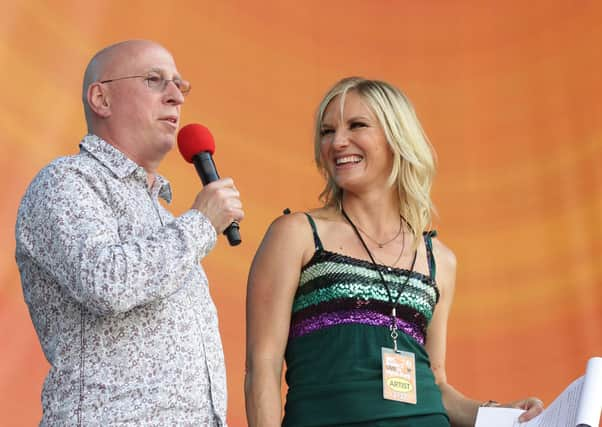World Radio Day: How Covid has tuned younger generation into the power of the medium (and Ken Bruce)


When the first World Radio Day was proclaimed at the United Nations Educational, Scientific and Cultural Organisation’s General Conference back in 2011, organisers wanted to celebrate how the medium helps reach the world’s most marginalised people and remote communities.
A decade later, as the event celebrates its 10th anniversary this Saturday, the power of radio in helping to combat loneliness and making people feel more connected has become even more apparent over the last 12 months as repeated lockdowns have resulted in enforced isolation for countless millions.
Advertisement
Hide AdAdvertisement
Hide AdNew research by Pure Radio has suggested that the benefits of radio in these troubled times are increasingly being appreciated by a younger audience, with 62 per cent of 18-34s suggesting they are listening more than pre-pandemic.
The survey, which involved speaking to 2,000 people, found on average over a third of Brits say they have listened to the radio more during the pandemic.
Home-working seems to be a key factor, with over a fifth listening whilst having breakfast or during the workday itself, aiming to recreate their office atmosphere from home.
While there may be more young people tuning into the radio, when it comes to the most-loved presenters in the UK it was some of our most familiar and experienced voices that dominated with Ken Bruce topping the charts.
Advertisement
Hide AdAdvertisement
Hide AdOthers on the list including Nick Ferrari, Chris Evans, Jeremy Vine and Zoe Ball, as well as Chris Moyles and Alexander Armstrong.
Throughout the pandemic, national and local radio has been listened to fairly equally, with 63 per cent listening to national and 45 per cent to local stations, and both for similar reasons.
According to the survey results, Brits have listened to nationals to get the latest news (52 per cent), to be entertained (49 per cent) and to listen to their favourite music (46 per cent). The top three are also the same at local level. But it seems our bonds are strong with local radio, as over a fifth listen to have some sort of companionship throughout the day and to feel connected to their local area (12 per cent).
Peter Ogley, chief executive of Pure Radio, says: “Radio has never been so important in keeping us connected with the wider community and further, and to keep us feeling supported and comforted. Radio presenters are a constant, trusted voice for listeners and we can’t champion the importance of supporting your favourite stations enough.”
Advertisement
Hide AdAdvertisement
Hide AdWorld Radio Day always falls on February 13 each year to coincide with the anniversary of the launch of United Nations Radio in 1946.
Audrey Azoulay, Director-General of UNESCO, says the event is more important than ever this year.
“As we celebrate the 10th anniversary of World Radio Day, the past year has highlighted the extent to which radio, this young medium, developed some 110 years ago, remains essential to our contemporary societies,” she says.
“The Covid-19 pandemic has reminded us of its added value: with a penetration rate of over 75 per cent in developing countries, radio remains the most accessible medium. That is why it has been a key tool for our action in response to the crisis. It has helped to save lives by making it possible to relay health instructions, make reliable information accessible and combat hate speech. UNESCO has harnessed its potential by producing royalty-free audio messages in 56 languages and offering them to radio stations around the world to counter false rumours.
Advertisement
Hide AdAdvertisement
Hide Ad“More than ever, we need this universal humanist medium. Without radio, the right to information and freedom of expression and, with them, fundamental freedoms would be weakened, as would cultural diversity, since community radio stations are the voices of the voiceless.”
Support The Yorkshire Post and become a subscriber today. Your subscription will help us to continue to bring quality news to the people of Yorkshire. In return, you’ll see fewer ads on site, get free access to our app and receive exclusive members-only offers. Click here to subscribe.
Comment Guidelines
National World encourages reader discussion on our stories. User feedback, insights and back-and-forth exchanges add a rich layer of context to reporting. Please review our Community Guidelines before commenting.